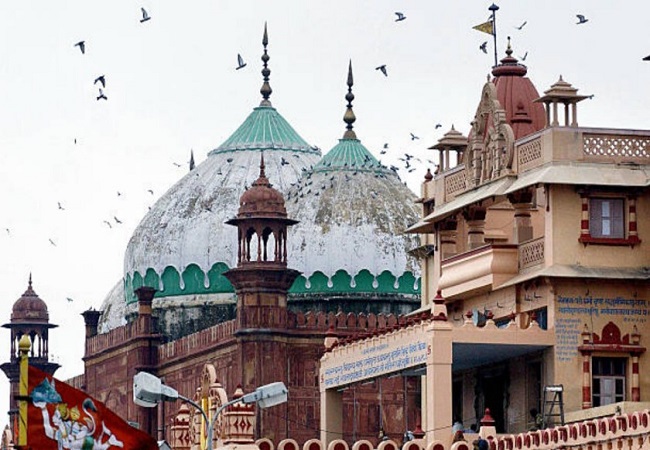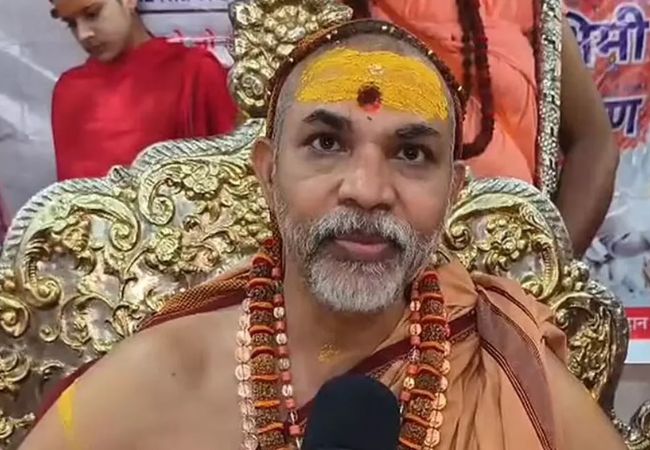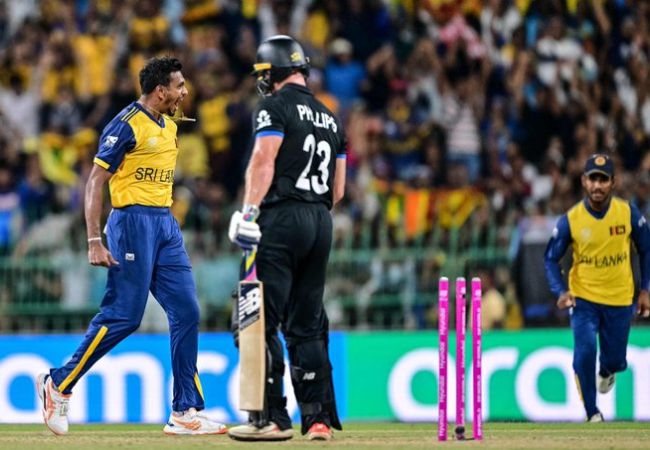Mathura: A group of devout Hindus has moved a Mathura civil court here for removal of a mosque allegedly built on orders of Mughal Emperor Aurangzeb in 1669-70 at the exact birthplace of Lord Sri Krishna within the 13.37-acre premises of Katra Keshav Dev temple in the holy city.
The petition filed in the court of Mathura Senior Civil Judge Chhaya Sharma on Friday has also demanded the annulment of a 1968 Mathura court ruling, ratifying a land deal reached between the Shree Krishna Janmasthan Seva Sansthan and Shahi Idgah Management Committee, perpetuating the existence of the mosque within the temple premises.
The petition was filed by Lucknow resident Ranjana Agnihotri and five others, including Delhi resident Parvesh Kumar, Rajesh Mani Tripathi of Siddharth Nagar in Uttar Pradesh, Karunesh Kumar Shukla of Basti, and Shivaji Singh and Tripurari Tiwari, both of Lucknow.
Agnihotri, 51, has also moved the court as the next friend of both the deities, Sri Krishna Virajman and the Asthan Shrikrishna Janam Bhoomi, Katra Keshav Dev, claiming both to be juristic persons, liable to be represented in courts by their next friends , if the temple 'shebaits' fail to move court to protect deities rights and interests.
The petitioners have arrayed four organizations as the respondents in their plea. They include the UP Sunni Central Waqf Board and the Committee of Management of the Shahi Masjid Idgah, the 17th-century mosque existing within the temple premises.
The two other bodies which have been arrayed as respondents are Shree Krishna Janambhoomi Trust, Mathura and Shree Krishna Janm Sthan Sewa Sansthan through their respective secretaries.
The petitioners made the two temple bodies as respondents arguing that they have failed to protect the interests of the deities.
On the timing of the moving court, the petitioners have asserted that the cause of action against the continuing wrong has been accruing every day and it last accrued on January 15, 2020, when the plaintiffs had visited Mathura to pay their obeisance to Lord Krisna and were shocked to see a mosque existing right within the temple.
Let the Truth be known. If you read VB and like VB, please be a VB Supporter and Help us deliver the Truth to one and all.
Lucknow (PTI): The Uttar Pradesh Congress on Wednesday staged a statewide protest demanding a fair and transparent inquiry into the FIR lodged against Swami Avimukteshwaranand Saraswati and those who filed the complaint against him.
In a statement issued here, the party said memorandums addressed to Prime Minister Narendra Modi were submitted through district magistrates in all districts of the state.
Uttar Pradesh Congress spokesperson Manish Hindvi told PTI that the memorandums were handed over through the district administration in all 75 districts.
In the memorandum, the party alleged that Saraswati and his disciples were "unnecessarily harassed and humiliated" by police on the occasion of Amavasya and were prevented from taking a ritual bath (at the Magh Mela). It further alleged that some disciples were manhandled and taken to a police station.
The memorandum also claimed that an FIR was later registered against Saraswati, his disciple Swami Mukundanand Brahmachari and several unidentified persons in a sexual harassment case. It termed the case a "conspiracy" aimed at tarnishing the seer's reputation.
Citing Articles 25 and 26 of the Constitution, the memorandum stated that these provisions guarantee religious freedom and the right of religious denominations to manage their own affairs.
It described the position of shankaracharya held by Saraswati as "one of the highest spiritual posts in Sanatan tradition" and alleged that the entire episode appeared to have been "orchestrated in a planned manner".
"We request that the background of the persons who got the FIR registered be investigated in a transparent manner by a retired high court judge and strict action be taken against them," the memorandum said.
It also sought a "fair and transparent probe" into the allegations levelled against Saraswati so that the truth could be established.
Earlier, Uttar Pradesh Congress president Ajay Rai had told reporters in Varanasi after meeting Saraswati that the party stood firmly with him.
The Congress said it would continue to press for an impartial inquiry into the entire episode.
On February 21, an FIR was lodged in Prayagraj against Saraswati and his disciple Mukundanand Brahmachari on charges of sexually abusing two persons, including a minor, over the past year at a gurukul and religious congregations, including the recently concluded Magh Mela.
Days after he was booked, Saraswati had said on Monday that he would not oppose his arrest and asserted that the "fabricated story" would be exposed sooner or later.
At a press conference on Wednesday, Saraswati alleged that criminals rule in Uttar Pradesh, level allegations and influence investigations, as he denied having any contact with the two persons for whose alleged sexual abuse he has been booked.



_vb_77.jpeg)
_vb_00.jpeg)
